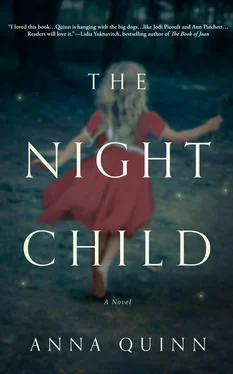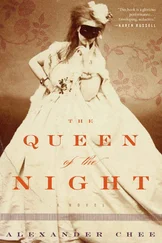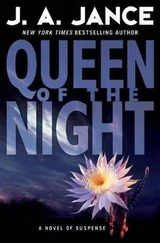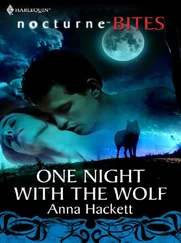“Nora,” he says. “What is it?”
She wants to say something but she can’t, and she plucks up her book bag and rushes out of the classroom and down the orange-tiled hallway and out the front door. The cold November air like a slap. She stops. Draws in the cold air deep, and it’s the cold air, the startling sharpness of it, the white puffs from her mouth, that begin to anchor her to the present. Thank God. She doesn’t want to have to explain to Paul what happened—he would only worry, might use it as a reason to stay home rather than travel. He is not one to relax all day long, let alone an entire week.
“Nora! Nora! Over here!” Paul shouts from the rolled-down window of his black Saab.
She walks, speeds up her pace, wants to appear normal, speeds toward him, speeds toward the concrete noun of him, so real and specific in his black car, the car reorienting her even more, and the shock of what happened has almost completely subsided now, though she can still feel the residual fear of it, a light dusting of it throughout her entire body.
“Just your imagination,” she whispers, her mouth working better now, and by the time she opens the car door and slides in, she feels almost completely normal.
“You okay?” Paul starts the engine. It’s started to drizzle, and he flips on the windshield wipers.
“Yeah.” She drops her book bag on the floor between her legs.
“Hi Mommy!” Fiona shouts from the back seat. “Are you excited to go on our trip?”
Nora takes one more deep breath and turns toward Fiona with a smile. Her daughter’s small freckled face flushed with excitement, her arms wrapped around a stuffed orca. “Absolutely,” Nora says, clicking her seatbelt. “Absolutely.”
CHAPTER TWO: November 28, 1996
In the hotel, Nora pulls open the heavy curtains and is immediately comforted by the wide expanse of beach, water, and sky. The tide plunges in, silver-colored water flashing whitecaps like a thousand gulls who might at any moment lift up to the sky, light meeting light. Fiona, already on the beach, happy to be alive, laughing and chasing a white feather, her blonde hair flying wild. Paul strides behind her, hands in his pockets. He moves differently here than he does at home. Here, in the beach grasses, he is easier, but at home, when she sits with him at the kitchen table, the purple lupines in a vase between them, his tranquility vanishes behind his preoccupations and she feels an overwhelming urge to knock the vase over.
Lately, the way he is makes her (and Fiona too, Nora can see it on her face) feel unnecessary and alone. Fiona often asks her why Daddy is so busy, but Nora’s explanation is nebulous, and she’ll say, “It’s a big job to sell big buildings.” But he’s acting like someone who’s having an affair.
They’d met when Nora was searching for a small house to buy in West Seattle and Paul was her Realtor. He’d patiently shown her house after house until she’d suddenly changed her mind—realized she wasn’t ready to buy an entire house, and rented a forty-foot houseboat named Mucho Gusto with bamboo floors on Lake Union because it was something she’d always wanted to do—live on the water, live in a floating home. Paul had warned her that houseboats required a lot of upkeep because water is corrosive and accelerates deterioration—she’d be constantly painting and varnishing. She’d moved there anyway, lived contentedly, felt more connected to the world than ever before, until marrying him a year later. They’d moved into a bungalow then, on Capitol Hill, because the constant rolling back and forth of the houseboat made him nauseated.
Paul was five years older than her, steady and ambitious. At the time she liked that—he had a life of his own and didn’t need her for validation or inspiration, but now it seems, he doesn’t need her for anything. Not even sex. Not that their sex life is great, or was ever great—it isn’t. It wasn’t. But still. Red flag waving high in the sky.
She hasn’t told him about the hallucination. She’s convinced herself it was a dream brought on by exhaustion, a freakish moment that’s over now. There’s no sense in telling him about it. She can’t deny though, she is still disturbed by the girl’s face, the blue eyes. Yes, the blue eyes bother her. There was something significant about them, something more than a random fleeting remnant of a nightmare.
She pushes a worn upholstered chair closer to the window, sideways so she can hear the waves and avoid the glare. Sinking into the plump cushions, she leans her head back, closes her eyes, and breathes in rhythm with the ebb and flow of the ocean. Her grandfather told her once, as they sat on the shore of Galway Bay, that on the ebb, the waves gathered up secrets and carried them away to other places, and on the flow, the secrets spilled into new places until they were heard. She’d asked him if he had ever heard any secrets but he’d just put his finger on her lips and said, “ Listen .”
In this moment, she is content.
But breathing like this, letting her guard down, is a mistake, for it is only a few minutes later when again she feels rising panic, the same agitation of air she’d felt in the classroom. She opens her eyes. There, less than ten feet away, inches above the bed, the girl’s face forms out of nothingness . Oh, my God, not again. Please, not again. The face, obscure and veiled in blues and violets, hangs there for a few seconds and then, as quickly as before, disappears. And now here is a voice, a perfectly clear child’s voice, a voice that is not in her mind, but above her, saying, “ Remember the Valentine’s dress .”
Nora’s heart seizes for a moment, then races and pounds loud, and before she has a chance to calm herself, to even consider what has happened, shoes bang on the stairs and Paul and Fiona burst through the door. Fiona rushes in, flushed and eager to show Nora her treasures. She holds out her yellow pail and tilts it so Nora can look inside.
“See! Aren’t they pretty?”
Her daughter’s voice slips around her like a lullaby, and her heart rate slows. She leans over and peers into the pail. It’s hard to resist reaching in and touching the feathers and sea glass, but her hands are shaking, so she keeps them folded on her lap. “Beautiful honey, just beautiful,” she says.
“I’m going to sort them into sizes and colors,” Fiona says, rushing into the alcove where she will sleep.
“Honey,” Nora calls to her with effort, “close the door behind you please. Mommy wants to talk with Daddy for a moment.”
Fiona pauses in the doorway and looks at Nora nervously. “Mommy—is everything okay?”
“Yes, honey. Everything’s fine,” Nora says lightly, though of course everything is not.
“What’s going on?” Paul says, once Fiona’s door is closed. He sits on the edge of the bed and unties his hiking boots.
“I don’t know,” she whispers, drawing in a deep breath.
“What do you mean, you don’t know? What’s up?” He stands, pulls his T-shirt over his head, and walks over to his suitcase. He opens it and grabs a blue wrinkle-free shirt.
“I don’t know. God, I … I … feel like I’m having a nervous breakdown or something.”
He turns to her, buttons his shirt. “C’mon, Nora.” He pulls off his jeans, pulls on his tan khakis, zips the fly. “You’ve just got too much on your plate, that’s all. You never should have taken that department-chair job.”
“Paul—”
He checks his watch. “Reservations are in fifteen minutes. Get dressed up, you’ll feel better. Eat something. Christ, you’re so thin! Probably half your problem.” He pulls on his brown dress socks while he says all this.
Читать дальше












